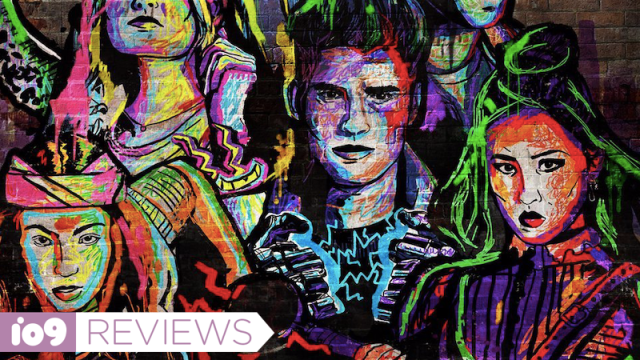Runaways’ Sophomore Season Reminds Us Villains Live Close to Home
Runaways has always taken its time to let you get to know its characters and why you should care about them. But rather than giving the sophomore season any space to breathe, Runaways picks up right where it left off with the children of the Pride fleeing for their lives after discovering that their parents truly were a cult of bloodthirsty killers willing to do whatever it took to maintain their grip on power and success.
In pulling the kids away from their parents, Runaways’ second season actually puts itself in an excellent position to further explore what it means to be a family rather than a team. Though the Runaways’ reason early on is that they need to learn how to use their powers together so they can be ready to fight, it’s always their emotional connections that ultimately pull them together. They’re not just friends, they’re each other’s people.
With their parents leveraging their influence over Los Angeles to hunt them down, the Runaways seek refuge in the city’s shadow, leaving their privileged lives behind (no phones, no Lyft rides, no money) in the hopes of finding refuge amongst the disenfranchised, unseen underclass the Pride once preyed upon at Jonah’s behest.
Runaways smartly emphasises the Pride’s more run-of-the-mill evil by forcing the kids to confront the real horrors of class inequality and poverty, things their parents really only ever feigned concern over in order to maintain public appearances. In seeing just how much more their parents could really be doing to make the world a better place, each of the kids comes to a personal understanding of what kind of forces for good they want to be.
With most of their secrets revealed to one another, the Runaways all begin to connect in the way that any group of people going through a shared trauma would. But just as the heroes all find themselves drifting towards the regular kinds of adolescent problems you’d expect from a show about teens, Runaways smartly reminds its characters (and the audience) of the incredible danger they’re all in.
For Molly (Allegra Acosta), the transition to becoming a fugitive is easiest, in large part because she sees it as an adventure and an opportunity for her and her friends to use their powers to help protect those who can’t defend themselves. For Gert (Ariela Barer), on the other hand, their circumstances are a trigger that sets her on a downward spiral of anxiety that, coupled with losing access to the meds that help her cope with the world, becomes a heavy burden that she’s unsure how to ask for help with.
The budding relationship between Nico (Lyrica Okano) and Karolina (Virginia Gardener) continues to develop over the course of the season, but as much as they both clearly have strong feelings for one another, they’re also too level-headed and concerned with the practical aspects of survival to really stop and let themselves fall properly in love. The moments they have together are charged with longing and uncertainty that’s undercut by a realistic fear that they could be ripped apart at any moment, and it makes every scene they have together crackle.
[referenced url=”https://gizmodo.com.au/2017/12/marvels-runaways-just-proved-how-easy-it-is-to-include-queer-characters/” thumb=”https://i.kinja-img.com/gawker-media/image/upload/t_ku-large/yt1ikracv8a2ht7q1sc9.png” title=”Marvel’s Runaways Just Proved How Easy It Is To Include Queer Characters” excerpt=”Listening to the way film studio executives hem and haw about whether they will ever get around to putting queer characters on the big screen in live-action comic book adaptations, you’d think someone was asking them to choose which of their beloved children they were willing to sacrifice so that the others might live.”]
Chase (Gregg Sulkin) and Alex’s (Rhenzy Feliz) paths are similarly intertwined as they clash for leadership over the group (despite Nico clearly being the Red Ranger), but it never quite feels as if either is really jockeying for power. Like their friends, they’re scared and trying to pull themselves into something that resembles a family in order to keep everyone safe.
The parents of the Pride go through significant changes of their own now that their reality has been exposed to their children. In Runaways’ first season, you watched the parents—who were initially presented as being objectively evil—be revealed as just people who were simply trying to do their best to ensure their kids’ safety. But what you begin to see as the second season unfolds is that there’s a degree to which the Pride parents were merely trying to delude themselves into thinking that their kids were more than just accessories to their lives. It’s a dark and ugly kind of energy to infuse villains with but, curiously, it also humanizes them in an effective way.
Within the larger scale of the Marvel Cinematic Universe, Runaways’ stakes are relatively small—California might break off into the ocean if the kids don’t stop the Pride’s plan—but the season does widen its scope and introduce some new power players from the comics. To say that Runaways’ plot gets a little more cosmic would be an understatement, but its characters remain realistically grounded. The first half of the season is a measured, but excellent start, and if you stick around for the second half, you’re in for some very surprising, satisfying plot twists.
